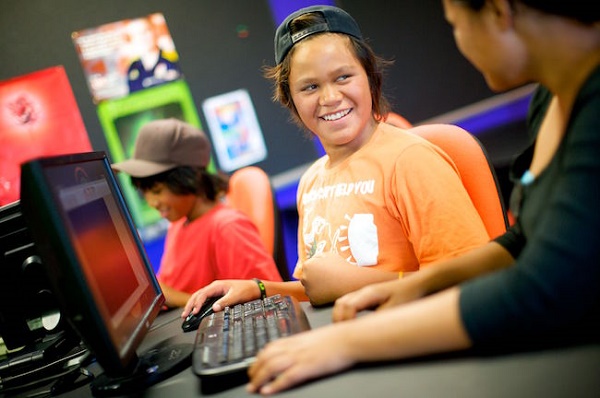
High Tech Youth delivers cyber learning to underserved communities
<h3 style="text-align: justify;">High Tech Youth, one of New Zealand&#8217;s largest after-school cyber learning programs, is aiming to fill all vacant technology and ICT jobs by 2020 with Maori and Pasifika youth in their training programs.</h3>
<p style="text-align: justify;">The not-for-profit organisation is bringing together more than 70 schools, community groups and leaders from New Zealand&#8217;s top technology companies to an Indigenous Innovation Hui in Auckland at the end of August.</p>
<p style="text-align: justify;">High Tech Youth chairperson, Sam Chapman, says technology is shattering traditional economic norms. In the past, people made money through an individual competitive advantage but in the &#8220;new digital world, it is the willingness to share and collaborate that gives you and your whanau the advantage. This way of thinking and doing is not unfamiliar to indigenous people. Technology and culture together have the potential to radically transform New Zealand&#8217;s so-called underserved communities for good.&#8221;</p>
<p style="text-align: justify;">This is in stark contrast to the ICT and technology sector&#8217;s global record which is said to be &#8220;appalling&#8221; for lack of diversity and gender equity. In the United States, for example, fewer than 21 per cent of the ICT workforce is female and fewer than four per cent are people of colour &#8211; and it is even worse in New Zealand.</p>
<p style="text-align: justify;">Mike Usmar, <a class="wpil_keyword_link" href="https://www.schoolnews.co.nz/2015/10/new-chief-executive-for-education-council/" title="chief executive" data-wpil-keyword-link="linked" target="_blank">chief executive</a> officer at High Tech Youth, says, &#8220;The facts are clear, only one per cent of Maori are studying ICT at tertiary level, yet the technology export sector is worth more than seven billion dollars to our country. With just 2.5 per cent of the Maori workforce employed in ICT, we have to ask ourselves why this is. And, more importantly, what would New Zealand look like socially and economically if the thousands of young people we see turning up to High Tech Youth Studios had full backing to transform the future of this country? The struggle with housing, health and unemployment would be gone.&#8221;</p>
<p style="text-align: justify;">Mr Usmar says while it recognises that the goal of 60,000 ICT jobs filled is ambitious, &#8220;we know our young people can foot it equally on the global cyber stage. We are credentialling youth as young as 13 with adult industry certifications.&#8221;</p>
<p style="text-align: justify;">The hui is co-sponsored by Microsoft NZ and AUT&#8217;s Colab.</p>

EXCLUSIVE: Teachers used to be paid two to three times more than minimum wage workers,…
After an “overwhelming” vote to reject the latest Government offer, secondary school teachers will begin…
Second-language learning should be compulsory, says a new report from a forum bringing together academics,…
A new entitlement aimed to improve access to learning support coordinators for schools with students…
Educators have raised questions about the Ministry of Education’s new secondary school subjects, set to…
Professional learning and development (PLD) for teachers needs to be higher impact for teachers and…
This website uses cookies.